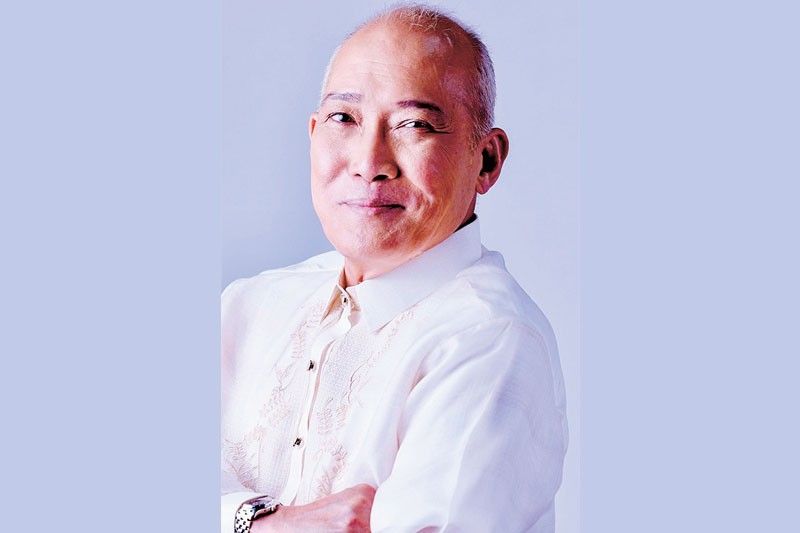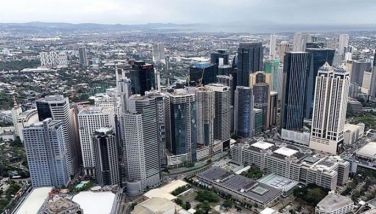Future-proofing the SEC

MANILA, Philippines — The Securities and Exchange Commission (SEC) has the crucial task of regulating the country’s corporate sector.
To fulfill this mandate amid a rapidly changing world, the SEC’s operations need to be sustainable, adaptive to changes and ready for the future.
One way to achieve this is through digitalization, says SEC Commissioner Rogelio Quevedo, a renowned information technology expert and IT law practitioner since 1983 who joined the SEC in June.
Quevedo, the only appointee of the Marcos administration in the SEC, wants to bring changes to the agency to make the regulator even more innovative and, in the process, help lead the corporate sector into the future.
He said these changes are necessary so that “the business thrust of the present administration can be harmonized and actually bring changes to the formation of the capital sector.”
Artificial intelligence
What changes does Quevedo have in mind?
“The SEC is actually at the forefront of digitization. And therefore, that is the change or the reform I would really like to spearhead. Not only in the front end but especially in the back end. That is where I want to infuse artificial intelligence into the government bureaucracy,” Quevedo said in an email interview.
It is high time, he said, that the SEC adapts to the technology.
“This also comes from my background in the private sector, where way back in the ‘90s, I was part of a corporation at the forefront of technological innovation,” said Quevedo, former executive head of the MANCOM of PLDT-Smart and senior vice president of its international business division.
While he recognized that the SEC is already leading in digitization, he said many more reforms still need to be implemented.
“First, we have to remove the government bureaucratic mindset — the so-called institutional knowledge. Everything now has to be digitized. Therefore, not only do we have to eliminate the old-style bureaucracy, but we must also embrace technological changes to improve the government bureaucratic system,” he said.
Addressing cyberthreats
These technological changes can help the SEC address cyberthreats, Quevedo said.
It’s crucial for the SEC to harness not only its internal knowledge but also the latest technology in cybersecurity to protect the information in its custody.
“We cannot rely on other government agencies or simply comply with the basics. The SEC has to be far better, even surpassing the Department of Information and Communications Technology. The SEC needs technology that can rival what is used by the banking sector because the information at the SEC is as important as what’s in your credit card, especially company information,” he said.
“The SEC holds the financial records of nearly all business executives and investors,” Quevedo added.
It’s no surprise that the information in the SEC’s custody is a prime target for hackers.
“And that is why we not only have to worry about the anti-red tape thrust of the government or the world. We have to safeguard privacy in the same way the New York Stock Exchange or the London Stock Exchange is protected, for example. We need that level of security. We must be hyper-vigilant — what I mean is real security,” he said.
From regulator to innovator
Quevedo is certainly a strong addition to the SEC, as he wants the agency to be an innovator, not just a regulator.
In the case of encouraging financial technology (fintech), Quevedo said he wants to see Filipinos benefit from fintech while being protected from financial scams.
“That is where my three areas of expertise come in. Especially in fintech, we need to lift the moratorium. This was imposed three years ago due to the financial scams circulating. I do not want to lift the moratorium without careful consideration because it might open the floodgates, which would be very dangerous, especially since a large sector of our population remains unbanked.
“And so, we must introduce fintech. But fintech is not just the old system of ‘5-6,’ which has been effective through the ages — throughout Philippine banking culture. Our banks also have a mentality of requiring collateral. So we must introduce this financial technology where loans are based on one’s ability to repay, not just collateral,” he said.
The Bangko Sentral ng Pilipinas has approved the lifting of the moratorium on digital banks, effective January 2025.
To boost the fintech landscape in the Philippines, Quevedo said regulators can use artificial intelligence “so that an evaluation can be done not based on collateral but on the financial viability of the project.”
In all, Quevedo believes that the Philippines can only catch up with its neighbors not just through industrialization but by developing its financial sector.
Improving the business climate
With a more innovative SEC, Quevedo hopes that by the end of the Marcos administration, the country’s business climate will be more favorable for investors.
With a better business environment, he envisions bringing overseas Filipino workers (OFWs), including Filipino executives in Hong Kong and Singapore, back to the country.
“The SEC should be at the forefront of encouraging Filipino executives to return so that the Philippines can become the center of financial management — the financial hub of Asia,” he said.
He said the SEC can contribute greatly in making the Philippines a financial hub, not just in Asia but on a global scale.
The country has the expertise, the talent and the potential to surpass even established financial centers like Singapore.
Thus, he said, there is a need to encourage OFWS, particularly those in management and executive positions, to return home and invest in the Philippines.
“Many Filipino executives are excelling abroad and I believe they can help elevate our country to new heights.”
Quevedo believes Filipino expats will always prefer the Philippines over neighboring countries.
“We have the best beaches, the best climate. We not only have Baguio, but we also have Tanay and Tagaytay. They want a cool climate. And most definitely, we have the best people—English-speaking and a culture that embraces expats,” he said.
There is a lot of work to be done, and Quevedo is aware of the task ahead. But he is ready to lend his expertise to help create an innovative SEC.
“I would really like to secure small wins immediately. That is why I am trying to introduce changes and innovations,” he said.
In all, Quevedo said that by embracing innovation, prioritizing cybersecurity, fostering inclusivity and encouraging collaboration, the SEC can play a pivotal role in shaping the future of the country’s capital markets and financial sector.
- Latest
- Trending


























